Antony Froggatt is an energy policy consultant and a senior research fellow at Chatham House. He is co-author of The World Nuclear Industry Status Reports .
Antony Froggatt is a senior research fellow in the Energy, Environment and Development Programme at Chatham House and has been a freelance energy policy consultant since 1997, based in London. Previously, he was the Greenpeace International Nuclear Policy Campaigner. [1]
With Mycle Schneider, Froggatt is co-author of The World Nuclear Industry Status Reports , which suggest that nuclear power will continue to decline. [2] [3] Froggatt and Schneider wrote the Systems for Change report for the Heinrich Böll Foundation in 2010. [4] Froggatt has commented extensively on the 2011 Japanese nuclear accidents. [5] [6] [7] He says "that the cascade of problems at Fukushima, from one reactor to another, and from reactors to fuel storage pools, will affect the design, layout and ultimately the cost of future nuclear plants". [7]

Nuclear power is the use of nuclear reactions to produce electricity. Nuclear power can be obtained from nuclear fission, nuclear decay and nuclear fusion reactions. Presently, the vast majority of electricity from nuclear power is produced by nuclear fission of uranium and plutonium in nuclear power plants. Nuclear decay processes are used in niche applications such as radioisotope thermoelectric generators in some space probes such as Voyager 2. Generating electricity from fusion power remains the focus of international research.
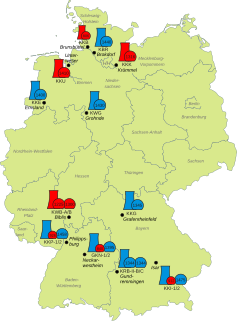
A nuclear power phase-out is the discontinuation of usage of nuclear power for energy production. Often initiated because of concerns about nuclear power, phase-outs usually include shutting down nuclear power plants and looking towards fossil fuels and renewable energy. Three nuclear accidents have influenced the discontinuation of nuclear power: the 1979 Three Mile Island partial nuclear meltdown in the United States, the 1986 Chernobyl disaster in the USSR, and the 2011 Fukushima nuclear disaster in Japan.

Nuclear energy policy is a national and international policy concerning some or all aspects of nuclear energy and the nuclear fuel cycle, such as uranium mining, ore concentration, conversion, enrichment for nuclear fuel, generating electricity by nuclear power, storing and reprocessing spent nuclear fuel, and disposal of radioactive waste.
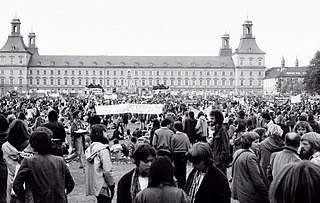
The anti-nuclear movement is a social movement that opposes various nuclear technologies. Some direct action groups, environmental movements, and professional organisations have identified themselves with the movement at the local, national, or international level. Major anti-nuclear groups include Campaign for Nuclear Disarmament, Friends of the Earth, Greenpeace, International Physicians for the Prevention of Nuclear War, Peace Action and the Nuclear Information and Resource Service. The initial objective of the movement was nuclear disarmament, though since the late 1960s opposition has included the use of nuclear power. Many anti-nuclear groups oppose both nuclear power and nuclear weapons. The formation of green parties in the 1970s and 1980s was often a direct result of anti-nuclear politics.

Nuclear power in the United States is provided by 94 commercial reactors with a net capacity of 96.6 gigawatts (GW), with 63 pressurized water reactors and 31 boiling water reactors. In 2019, they produced a total of 809.41 terawatt-hours of electricity, which accounted for 20% of the nation's total electric energy generation. In 2018, nuclear comprised nearly 50 percent of U.S. emission-free energy generation.

Prior to the 2011 Tōhoku earthquake and tsunami, Japan had generated 30% of its electrical power from nuclear reactors and planned to increase that share to 40%. Nuclear power energy was a national strategic priority in Japan. As of March 2020, of the 54 nuclear reactors in Japan, there were 42 operable reactors but only 9 reactors in 5 power plants were actually operating. A total of 24 reactors are scheduled for decommissioning or are in the process of being decommissioned.

New nuclear power plants typically have high capital expenditure for building the plant. Fuel, operational, and maintenance costs are relatively small components of the total cost. The long service life and high capacity factor of nuclear power plants allow sufficient funds for ultimate plant decommissioning and waste storage and management to be accumulated, with little impact on the price per unit of electricity generated. Other groups disagree with these statements. Additionally, measures to mitigate climate change such as a carbon tax or carbon emissions trading, would favor the economics of nuclear power over fossil fuel power. Other groups argue that nuclear power is not the answer to climate change.
Stephen Thomas is a professor at the University of Greenwich Business School, working in the area of energy policy. Before moving to the University of Greenwich in 2001, Thomas worked for twenty-two years at the University of Sussex.
Canada has an active anti-nuclear movement, which includes major campaigning organisations like Greenpeace and the Sierra Club. Over 300 public interest groups across Canada have endorsed the mandate of the Campaign for Nuclear Phaseout (CNP). Some environmental organisations such as Energy Probe, the Pembina Institute and the Canadian Coalition for Nuclear Responsibility (CCNR) are reported to have developed considerable expertise on nuclear power and energy issues. There is also a long-standing tradition of indigenous opposition to uranium mining.

The anti-nuclear movement in the United Kingdom consists of groups who oppose nuclear technologies such as nuclear power and nuclear weapons. Many different groups and individuals have been involved in anti-nuclear demonstrations and protests over the years.
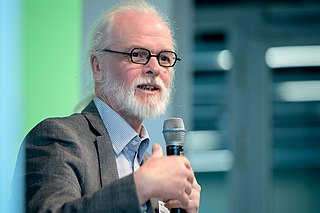
Mycle Schneider is a Paris-based nuclear energy consultant and anti-nuclear activist. He is the lead author of The World Nuclear Industry Status Reports. He has advised members of the European Parliament on energy issues for more than twenty years. In 1997 he received the Right Livelihood Award.

The nuclear power debate is a long-running controversy about the risks and benefits of using nuclear reactors to generate electricity for civilian purposes. The debate about nuclear power peaked during the 1970s and 1980s, as more and more reactors were built and came online, and "reached an intensity unprecedented in the history of technology controversies" in some countries. Thereafter, the nuclear industry created jobs, focused on safety, and public concerns mostly waned. In the last decade, however, with growing public awareness about climate change and the critical role that carbon dioxide and methane emissions plays in causing the heating of the earth's atmosphere, there has been a resurgence in the intensity of the nuclear power debate. Nuclear power advocates and those most concerned about climate change point to nuclear power's reliable, emission-free, high-density energy, alongside a generation of young physicists and engineers working to bring a new generation of nuclear technology into existence to replace fossil fuels. On the other hand, skeptics point to nuclear accidents such as the death of Louis Slotin, the Windscale fire, the Three Mile Island accident, the Chernobyl disaster, and the Fukushima Daiichi nuclear disaster, combined with escalating acts of global terrorism, to argue against continuing use of the technology.

Since about 2001 the term nuclear renaissance has been used to refer to a possible nuclear power industry revival, driven by rising fossil fuel prices and new concerns about meeting greenhouse gas emission limits.

The World Nuclear Industry Status Report is a yearly report on the nuclear power industry. It is produced by Mycle Schneider, a founding member of WISE-Paris, which is the French branch of the anti-nuclear group WISE, which he directed from 1983 to 2003.
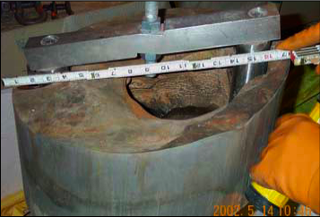
The United States Government Accountability Office reported more than 150 incidents from 2001 to 2006 of nuclear plants not performing within acceptable safety guidelines. According to a 2010 survey of energy accidents, there have been at least 56 accidents at nuclear reactors in the United States. The most serious of these was the Three Mile Island accident in 1979. Davis-Besse Nuclear Power Plant has been the source of two of the top five most dangerous nuclear incidents in the United States since 1979. Relatively few accidents have involved fatalities.

The international reaction to the 2011 Fukushima Daiichi nuclear disaster has been diverse and widespread. Many inter-governmental agencies responded to the Japanese Fukushima Daiichi nuclear disaster, often on an ad hoc basis. Responders included International Atomic Energy Agency, World Meteorological Organization and the Preparatory Commission for the Comprehensive Nuclear Test Ban Treaty Organization, which has radiation detection equipment deployed around the world.
M. V. Ramana is a physicist who works at the Nuclear Futures Laboratory and the Program on Science and Global Security, both at Princeton University, on the future of nuclear power in the context of climate change and nuclear disarmament. Ramana is a member of the International Panel on Fissile Materials and the Bulletin of the Atomic Scientists’ Science and Security Board.
Energy Fair in the United Kingdom is a group of six people leading a campaign that claims that the nuclear power industry receives unfair subsidies, consisting of:

Long one of the world's most committed promoters of civilian nuclear power, Japan's nuclear industry was not hit as hard by the effects of the 1979 Three Mile Island accident (USA) or the 1986 Chernobyl disaster (USSR) as some other countries. Construction of new plants continued to be strong through the 1980s and into the 1990s. However, starting in the mid-1990s there were several nuclear related accidents and cover-ups in Japan that eroded public perception of the industry, resulting in protests and resistance to new plants. These accidents included the Tokaimura nuclear accident, the Mihama steam explosion, cover-ups after accidents at the Monju reactor, and the 21 month shut down of the Kashiwazaki-Kariwa Nuclear Power Plant following an earthquake in 2007. Because of these events, Japan's nuclear industry has been scrutinized by the general public of the country.
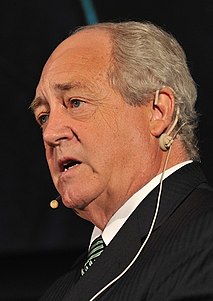
There are large variations in peoples’ understanding of the issues surrounding nuclear power, including the technology itself, climate change, and energy security. Proponents of nuclear energy contend that nuclear power is a sustainable energy source that reduces carbon emissions and increases energy security by decreasing dependence on imported energy sources. Opponents believe that nuclear power poses many threats to people and the environment. While nuclear power has historically been opposed by many environmentalist organisations, some support it, as do some scientists.